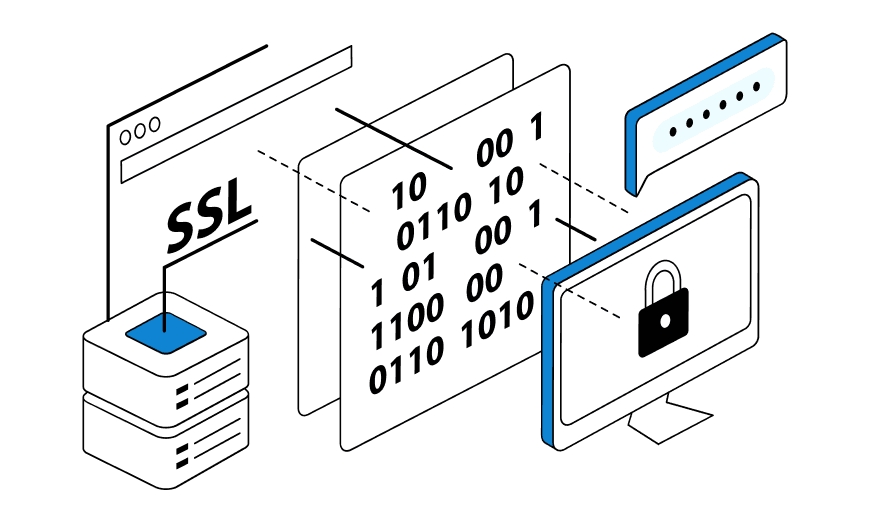
The modern world of marketing continues to evolve rapidly, and one of the most striking trends in recent years has been automation. This refers not only to software solutions that replace routine tasks, but also to the opportunities they open up for businesses.
Automation allows you to not only optimize processes, but also significantly increase the effectiveness of your marketing efforts. Every day, marketers are increasingly turning to automation tools to improve their competitiveness and achieve better results with minimal costs.
In this article, we’ll look at why marketing automation continues to gain popularity, how it affects business performance, and what key benefits it offers. We’ll also touch on key aspects that are becoming relevant for companies implementing automation in their processes.
Why is marketing automation becoming a trend?
Automation helps you not only scale, but also be more accurate, faster, and more personalized. Here are the key factors driving the rapid rise in popularity of marketing automation trends.
Reduced manual labor costs
Marketers no longer spend hours on repetitive tasks — everything that can be handed over to scripts and bots is outsourced. From mailings to analytics, automation frees up time for strategy rather than routine.
Content personalization
User segmentation and content adaptation to user behavior have become possible thanks to automated systems. Open VPN for PCs is particularly valuable here — a secure channel helps to obtain accurate data on user behavior in different regions, especially when it comes to parsing or retargeting.
Advertising optimization
Automation tools don’t just set up ads — they learn from data and adjust campaigns in real time. To collect this data securely, mobile proxies from LTESOCKS are often used, which guarantee anonymity and clean sessions.

Key trends in marketing automation
Marketing automation continues to evolve rapidly, and its capabilities are becoming increasingly diverse. Every year, new tools and approaches emerge that help businesses not only simplify processes but also significantly improve the effectiveness of their marketing campaigns. Let’s take a look at some of the key trends shaping the future of marketing.
Artificial intelligence and machine learning
With each passing month, marketing automation trends are becoming more closely linked to AI. Among the main areas of focus are:
- AI algorithms for automatic audience segmentation.
- Predictive analytics — predicting customer behavior.
- ChatGPT and other language models that automate communication and request processing.
This is no longer the future — it is already a reality for teams focused on scale and speed.
Email and messenger marketing automation
Letters, chats, bots — all of this is connected into a single system where messages reach customers at the right time with the right message. And the entire chain can be launched without human intervention. But for the system to work accurately, the data must be clean — this is where proxies for secure marketing research come in.
Programmatic advertising and AI optimization
Platforms such as Google Ads, Facebook Ads, and TikTok are increasingly implementing machine learning. Today, algorithms decide where to allocate the budget and how to adapt creative content. All you need is the right signals from your side. And here again, tools that work through mobile proxies from LTESOCKS come to the rescue, allowing you to test different regions without the risk of being blocked.
The future of marketing automation
The development of marketing automation already plays an important role in effective business management today, but what does the future hold for this industry? Every year, technologies become more powerful and multifaceted, opening up new horizons for marketers and businesses. The future of marketing automation will be closely linked to the development of artificial intelligence, the integration of new communication channels, and increased personalization.
Paradoxically, the future of marketing automation lies at the intersection of technologies that are still perceived as experimental. One such example is blockchain.
Blockchain-based automation
Blockchain technology, known for its use in cryptocurrencies, is gradually finding its way into various fields, including marketing. Its potential for automating marketing processes promises to revolutionize the way we interact with customers, process data, and manage transactions.
Smart contracts, transparent advertising networks, traffic verification, and fraud prevention can all be implemented through blockchain. Its integration into marketing is a matter of time and demand for honest analytics.
Data transparency and security are among the key aspects that make blockchain attractive for marketing. Traditional data processing systems often raise questions of trust, especially when it comes to users’ personal information. Blockchain, on the other hand, creates secure and immutable records of transactions, making it an ideal tool for processing sensitive data.
Blockchain also enables the use of so-called smart contracts — transactions that are executed automatically once all pre-defined conditions are met. This can significantly simplify processes related to advertising agreements, collaboration with partners, and the sale of goods and services. For example, advertising platforms will be able to automatically execute contracts for ad placement, taking into account pre-agreed conditions (such as budget, display time, or target audience).
Blockchain technologies can be used to create ecosystems in which advertisers and publishers can interact directly, without the need for intermediaries such as advertising agencies or platforms. This can not only reduce advertising costs, but also increase the transparency of transactions by eliminating the possibility of manipulation of metrics such as clicks, impressions, and conversions.
It is also possible to verify the authenticity of goods and content. In marketing, this can be useful, for example, for tracking the origin and quality of goods, which is particularly important for brands focused on environmental friendliness and supply chain transparency. An example would be when consumers can verify the authenticity of products using a blockchain system that records all stages of their production and delivery. This strengthens customer trust in the brand and creates additional value in the eyes of informed buyers.
Blockchain enables microtransactions and the use of cryptocurrencies for small payments or microgrants, opening up new ways to monetize content. Brands will be able to offer users small rewards for interacting with ads, participating in surveys, reading articles, or creating content.
Blockchain tokenization allows the creation of digital assets that can represent various types of value, from bonuses and discounts to virtual goods and services. By using tokens in marketing, brands can create a closer connection with customers by providing them with exclusive access to offers, products, or content.
Blockchain also opens up opportunities for creating loyalty programs where customers can earn and exchange tokens for brand-related activities such as purchases, referrals, or participation in promotions. This approach can increase consumer trust and loyalty.
Blockchain-based marketing automation opens up a wealth of opportunities for businesses by improving processes related to data security, transaction transparency, and reducing intermediary costs. This is an important step toward creating more honest and efficient marketing ecosystems.

How to prepare for change?
Being ready for change in marketing isn’t about watching a couple of YouTube videos. It’s about systematically transforming processes within your team.
Invest in employee training
The development of any technology starts with people. Courses, master classes, and hands-on experience with new platforms — investments in training pay off faster than you think.
Use high-quality proxies for data collection
The more accurate your data, the more effective your automation. Internet speed check, connection stability, anonymity — all of these are critical when working with marketing data. Mobile proxy solutions from LTESOCKS or Open VPN for PC provide the flexibility and security you need for marketing research.
Conclusion: automation is an essential part of modern marketing. The trends are clear, and it’s up to you whether you stay behind or become an early adopter of new technologies.
FAQ
What is marketing automation?
Marketing automation is the use of technology to manage marketing processes without constant human involvement. From mailings to analytics collection, all actions are performed according to predefined scenarios. This allows companies to work faster, more personalized, and at a lower cost.
How does marketing automation help businesses?
First and foremost, it saves time and resources. But the key advantage is accuracy: instead of launching campaigns at random, you get data-driven solutions. In addition, automation improves the customer experience, which means increased loyalty and sales.
What technologies are used for marketing automation?
Key technologies include artificial intelligence (AI), machine learning, chatbots, CRM systems, email marketing platforms, programmatic advertising, as well as mobile proxies from LTESOCKS for secure data collection and Open VPN for PCs for secure access. All of these are building blocks in the construction of a modern marketing machine.
What does the future hold for marketing automation?
Blockchain, full digitalization, deep integration of AI models, and real-time personalization are not futuristic concepts, but trends that are already being tested on the market. The future of marketing automation is automatic decision-making based on data you can trust.
What skills are needed to work with marketing automation?
The ability to work with analytical data, an understanding of the principles of web testing, knowledge of email marketing tools, AI platforms, and — importantly! — testing software or at least basic technical solutions. Plus, the ability to learn and think strategically. Because people are the key component of effective automation.









